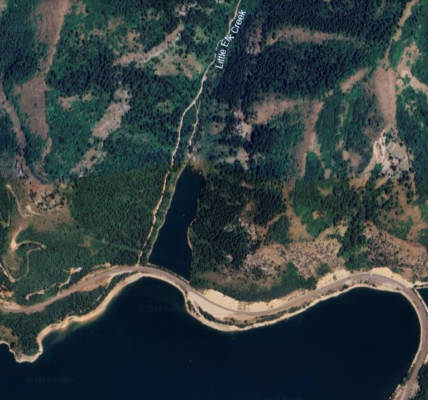
• Cost of former lease holder equipment down from $23M
By Sarah Elmquist Squires
Lander Journal
Via- Wyoming News Exchange
LANDER — The Northern Arapaho and Eastern Shoshone tribes must pay $13 million to Merit Energy Operators, the oil and gas company that formerly leased the Circle Ridge Oil Field, after an arbitration panel filed an order last week.
The tribes and the company have been embroiled in legal skirmishes for years over the oil field and equipment; last week’s arbitration order pared back the price the tribes must pay for Merit equipment they agreed to purchase when they took ownership of the oil field following the expiration of Merit’s lease – a three-person appraiser panel initially valued the equipment at more than $23 million.
Merit purchased the lease from Marathon Oil Company in 2016, and the lease expired in 2021. The handoff between Merit and the tribes included dozens of conflicts, and the arbitration order referenced 38 wells that Merit had padlocked as the parties argued over the value of the oil field equipment at Circle Ridge.
According to the lease that had expired, the tribes had the option to purchase the oil field equipment, and “shall pay … such sum as agreed to by the parties, or, if the parties cannot reach agreement, a reasonable price shall be fixed by a board of three appraisers, one of whom shall be chosen by the [tribes], one by [Merit], and one by the two so chosen.”
They couldn’t agree on a price.
Even before the three-person appraiser panel came to its $23-million price tag, Merit and the tribes were at the arbitration table, arguing over whether Merit should hand over documents outlining the wells’ history and equipment maintenance records to the tribes, whether they could present their positions to the appraisers regarding the equipment’s useful life, and whether Merit could freely access the property to remove the equipment, even as the appraisers were at work.
On August 31, 2022, the appraisers issued an unanimous report that said the “reasonable price” for the equipment was $23.1 million.
More than five weeks later, the tribes adopted the “Wind River Indian Reservation Oil Field Transition Ordinance,” which, if it had been applied to the Merit lease equipment argument, would have dismissed the appraisers’ valuation and required a new appraisal.
It would also have altered the lease’s definition of “equipment,” required a new appraisal to consider certain evidence like comparable sales, assumed the condition of underground equipment was poor, and given the right to the tribes to refuse to purchase certain equipment if they disagreed with the price issued by the appraisal, among other changes.
“The tribes contended that their status as sovereign gave them the right to change the results of the appraisal by making new rules after the appraisal was concluded,” the arbitrators wrote. “They also claimed that they could effectively amend the terms of the lease after it had expired and even though they had agreed in the lease that they would not, either directly or indirectly, cause the lease to be altered, amended, modified, canceled, or terminated.”
The arbitration panel took the issue of whether the ordinance was applicable seriously, writing that they’d spent considerable time on the question and viewed it “as a substantial issue with significant implications, not only for this arbitration, but for other proceedings involving the termination of leases on reservation land. There is little doubt that if the tribes had prevailed on this issue, the price for the equipment would have been significantly less than the $13,086,555 that this panel awarded.”
Along with the question of whether the ordinance should apply, the Northern Arapaho tribe argued that the price of the equipment should be reduced to between $3.6 and $5.3 million.
The arbitrators rejected the argument that the ordinance should apply to the equipment valuation.
The panel also determined that the appraisers’ inclusion of $9,913,695 for “wellbore drilling for casing installation” was improper because it was not listed as an equipment item under the lease.
They also reduced the valuation by just under $100,000 for equipment the tribes had elected not to purchase. That reduced the equipment by about 43%, to the $13 million figure.
Both parties issued challenges throughout the process, with the arbitrators sometimes siding with Merit, other times siding with the tribes. Because of that, the arbitrators ordered that each side should pay their own attorney fees and the expenses of the arbitration and appraisal.
Merit is now asking a federal court judge to make sure the tribes follow the order and pay the $13 million for the equipment.




